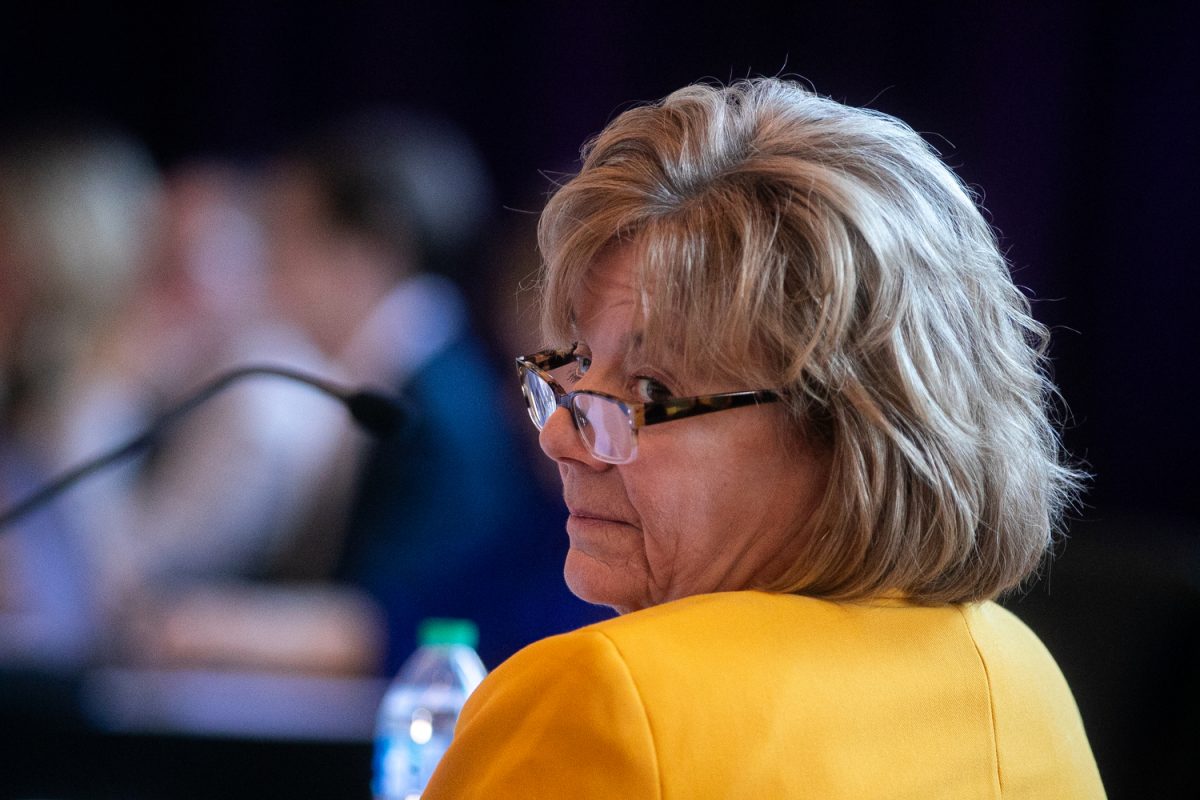By Tom Ackerman | [email protected]
The American Association of University Professors is responding to a request from its UI chapter to investigate the presidential-search process, by sending two representatives to campus on Oct. 16 and 17. The group is based in Washington, D.C., and works to keep academic institutions ethical and free in situations of controversy.
The inquiry will assess whether the association’s values have been violated in the search process, led by the state Board of Regents, which brought in business consultant Harreld to replace former President Sally Mason. The AAUP chapters of the three public universities in Iowa have criticized the process as opaque and not cognizant of campus opinion.
“The AAUP has always done a great job of participating in the academic mission of universities,” UI Professor Bob McMurray said. “It’s a welcome sign it wants to come and make sure the process was fair.”
Officials contacted by the AAUP — including interim President Jean Robillard and Regent President Pro Tem Katie Mulholland — have declined to meet with the representatives, saying AAUP’s letter of request lacks adequate reasoning for an inquiry.
“Unfortunately, your letter fails to identify with any level of specificity the issues or scope of your investigation,” Mulholland wrote in response to the organization when asked to be interviewed.
In addition, regents and regent office staff have been advised by legal counsel to not participate in interviews or the investigatory process at this time, Mullholland said.
“While that inquiry could find something, it probably won’t, and it will just echo what the student body has already said,” UI Student Government President Liz Mills said.
The AAUP is recently known for its vote to censure the University of Illinois over the Steven Salaita controversy in 2014 and in the University of Virginia Board of Visitors’ attempt to remove Teresa Sullivan as president in 2012.
If an investigation were to take place, the AAUP has the power to issue a censure on the UI or the regents, which would essentially label the college as having an administration that can’t be trusted.
“I’m not sure [the censure] would be a positive outcome, but it would certainly be a necessary one,” McMurray said.
The UI chapter of the AAUP requested the inquiry, though President Katherine Tachau could not be reached for comment by the time of publication.
The UI gave no comment on the issue. Regent spokesman Josh Lehman could not be reached for comment.
“If this was really an open and honest search, you’d think they would have no problem talking to the investigators,” McMurray said.
UI officials have declined to comment throughout the controversial steps approaching Harreld’s presidency on Nov. 2.
“Nationwide, people were taking notice. I’m happy the AAUP took notice and wanted to look into it,” McMurray said.
Regardless of how Harreld is perceived, the focus of the inquiry lies in the search process rather than Harreld himself.
“It reinforces our concerns about the search… It’s not just about us not getting our preferred candidates,” McMurray said.
Hannah Walsh, a representative for social science and education, said she had concerns with the process when asked about the AAUP’s action.
“Being a former regent, I was disappointed that there was such a lack of transparency in selecting the next president,” said Walsh, who served as a regent for two and a half years.







